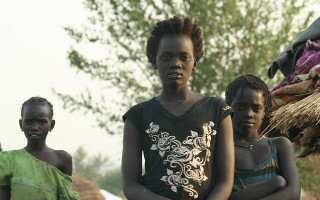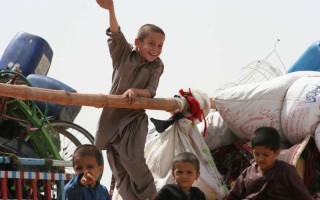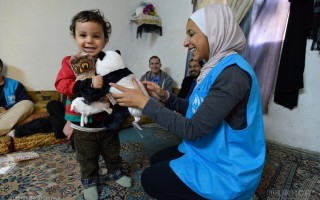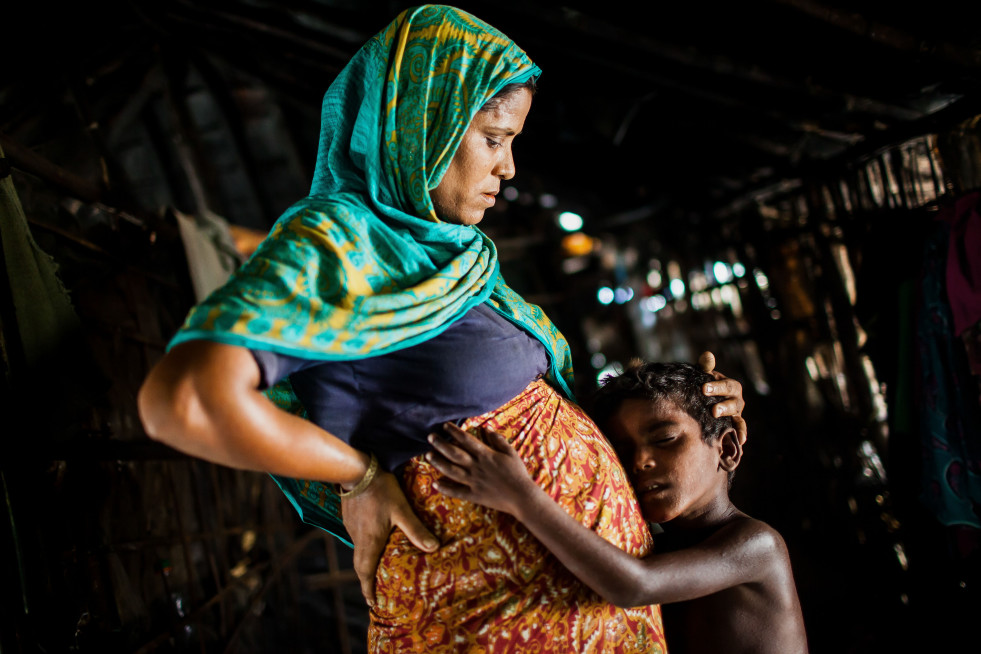
Nur Nahar, 30, with her middle son. She is the wife of Rahamat Ullah, 35. They came to Bangladesh together about fifteen years ago from Maungdaw, Sittwe, Myanmar to escape the violence and torture of the Myanmar Security forces. © UNHCR / Saiful Huq Omi
Most people know that UNHCR provides live-saving emergency assistance to refugees and displaced people in the form of clean water and sanitation, as well as shelter materials and other relief items, including blankets, sleeping mats and sometimes food. What many don’t realize is that the agency’s mandate also includes delivering vital education and health care services. Reproductive health needs in particular are “a question of survival,” according to Nadine Cornier, who is Senior Regional Reproductive Health and HIV Coordinator at UNHCR.
“My job is to ensure that refugees have access to reproductive health,” Cornier says. “That includes both emergency and non-emergency situations. When there’s a humanitarian crisis, I’m in the field to help set up life-saving priorities, which are not always obvious in terms of reproductive health, but we are definitely saving lives. That includes newborn and maternal care, taking care of girls and women who have been sexually assaulted and providing HIV antiretroviral treatments.”
Once immediate needs are taken care of, Cornier then works to scale up services depending on the ongoing priorities of people in a refugee camp setting. Based in Kinshasa, DRC, she covers 10 countries, including Democratic Republic of the Congo (DRC), the Republic of Congo, Central African Republic (CAR), Burundi, Rwanda and Chad, all of which have experienced conflicts causing people to flee their homes.
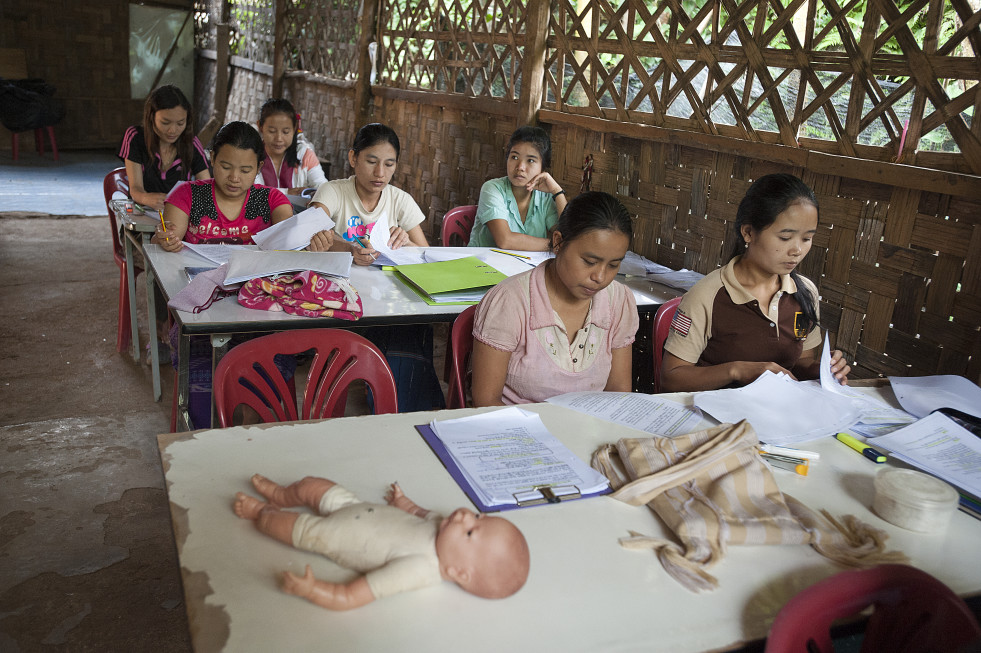
IRC work in the Ban Mai Nai Soi camp in Northern Thailand training assistant midwives. Dr Ma Myo Aye is the medical trainer pictured here teaching the six week course in Reproductive and Child Health. © UNHCR / Sebastian Rich
What’s not in her job description, but just as critical, is Cornier’s commitment to giving back power and dignity to all refugees. “Tomorrow, any one of us could be a refugee and we would be the same person as we were today,” she says. “We are all people and it’s extremely important to give back responsibility and dignity. In my instance that means that they take back their lives into their own hands. They may be refugees but they are still parents or children or adolescents.”
Adolescent reproductive health is an area she spends a lot of her time on, concerned that young people are sometimes overlooked in refugee populations. “They are no longer babies who can die of malnutrition,” she explains. “They are in the middle, pre-teens or teens and they have the most to lose.” Adolescence is by definition a time of great change and adding a catastrophic loss or trauma makes a challenging transition to adulthood even more so. “They can be in real danger if left alone,” she says, vulnerable to exploitation and risky behaviours that can drastically affect their future.
Cornier makes sure that the teens have access to health services, including birth control, sexual abuse treatment and counselling. That can be challenging as some health care workers can be judgmental, discouraging adolescents to come forward. “We don’t want to increase the gaps between parents and kids,” she says. “We discuss things a lot, often working through peer programs and talking mainly with mothers.” What she doesn’t do, Cornier emphasizes, is bring solutions. “I ask people what are their issues and what they feel they can do about it,” she says. “I find it’s extremely important to give them back their role as parents and to help them find their own solutions. Then our job is to help them implement those solutions.”
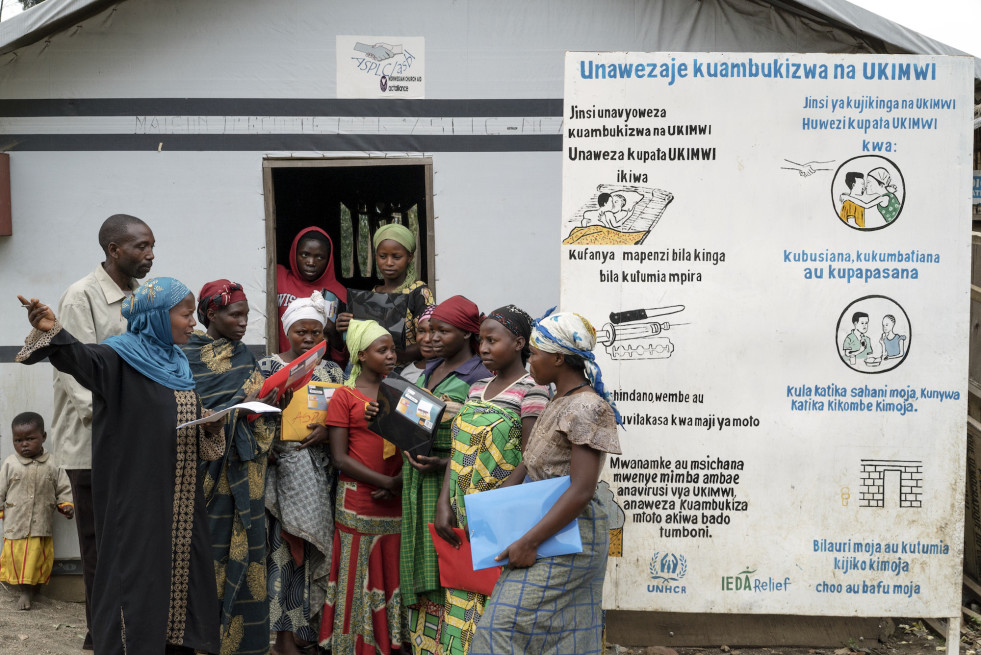
A group of women speak with one another next to a sign in Kalinga IDP camp, Masisi, Democratic Republic of Congo, that cautions people about the dangers HIV/AIDS. © UNHCR / Sebastian Rich
Cornier cites a refugee camp in East Africa where she was starting a project for sexually abused children and teen sex workers. She spoke to a group of girls who were doing sex work to buy things that weren’t provided through the food rations in the camp, such as sugar. Sitting under a tree one morning, the girls at first told Cornier that everything was fine: they did not have any problems with what they were doing; they used condoms and weren’t getting pregnant. “I told them that I didn’t blame them for having sex to buy sugar or slippers,” she says. “I explained that I wanted to work with them to find other ways to reach the same objective.” As their discussion deepened, the girls revealed that they weren’t actually using condoms because the men didn’t like them; and that they were in fact getting pregnant and using dangerous methods to “flush” the pregnancy away. They lied only because they thought that’s what adults wanted to hear.
Cornier worked with the girls and their parents, explaining how the abuse of underage girls was a crime and offering options for the young women who felt they had no choice but to engage in the sex trade. “What was great, was that six months later when I met with them again, more than half of them were no longer doing sex work,” she says. “They told me that they were no longer subject to abuse; they were standing straight and understood their rights. I was extremely proud of them.”
Each refugee camp is different, Cornier emphasizes, explaining that cultural differences call for varying culturally sensitive strategies. What remains the same, however, is Cornier’s approach to her work: “If we treat sex work, for instance, as a problem, then it involves judgement and a demand for a solution that makes these girls and women feel that they have no other options. If we treat it as an issue then we are no longer judging or blaming and we can treat it in a much more positive way.”



